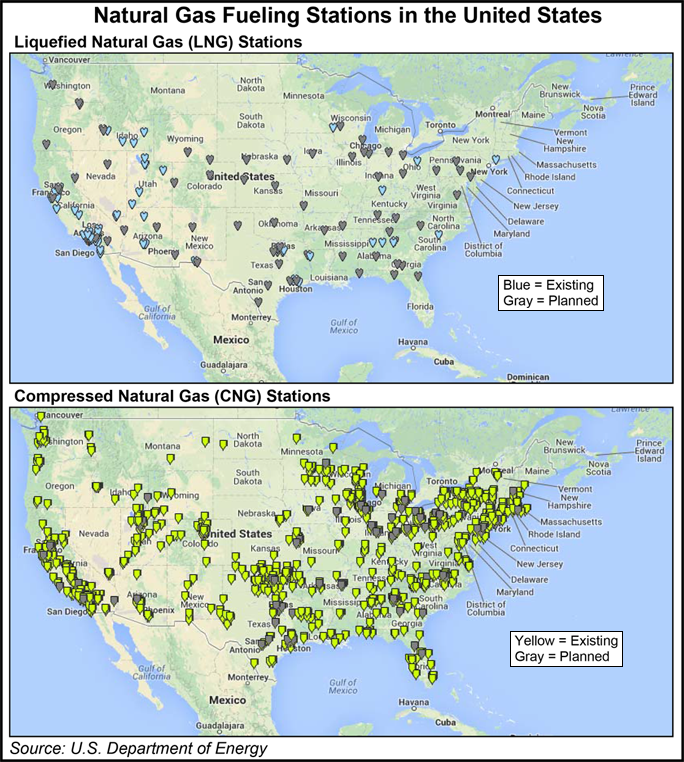Infrastructure | LNG | NGI All News Access
LNG Preferred for Over-the-Road Trucks, Clean Energy Says
Liquefied natural gas (LNG) is the preferred alternative fuel for over-the-road trucks, compared to compressed natural gas (CNG), according to California-based Clean Energy Fuels Corp., which supplies both LNG and CNG to customers.

Clean Energy has decided that America’s Natural Gas Highway, which it helped conceive and is helping to implement (see Daily GPI, Aug. 25, 2011), has to go for LNG to fuel class-8 trucks, as opposed to CNG, said Brian Powers, vice president for operations. The Newport Beach, CA-based company is aiming for 150 highway-located LNG fueling stations by the end of 2014.
“From what we’re seeing, the cost of an LNG truck is less than a CNG truck with a comparable range,” Powers said. Clean Energy emphasizes “total cost of service” in making determinations regarding LNG or CNG for fleet operators.
Some of the stations will be a combination of LNG and CNG (see Daily GPI, March 23, 2011), and some trucks will operate on CNG, but the vast majority will run on LNG, Powers said.
His contention is that when truckers consider fill-up time and the heavier weight of CNG tanks compared to LNG trucks, LNG is “the clear winner.” Clean Energy’s biggest competition is “misinformation,” Clean Energy chief marketing officer Jim Harger said in a year-end interview with Fleets & Fuels newsletter, which tracks the alternative fuel transportation sector.
Noting that CNG has a distinct market with smaller vehicles (package delivery, transit buses and refuse trucks), Harger called CNG Clean Energy’s “bread-and-butter.” The company operates nearly 400 CNG fueling stations, so it obviously is pushing both natural gas transportation fuels, he said.
Ultimately, LNG’s advantage is its similarity to diesel in terms of truck design, weight and fueling times, Clean Energy contends. The company’s LNG pumps can fuel two dispensers at the same time at 20 diesel gallon equivalents per-minute.
© 2024 Natural Gas Intelligence. All rights reserved.
ISSN © 1532-1231 | ISSN © 2577-9877 |
